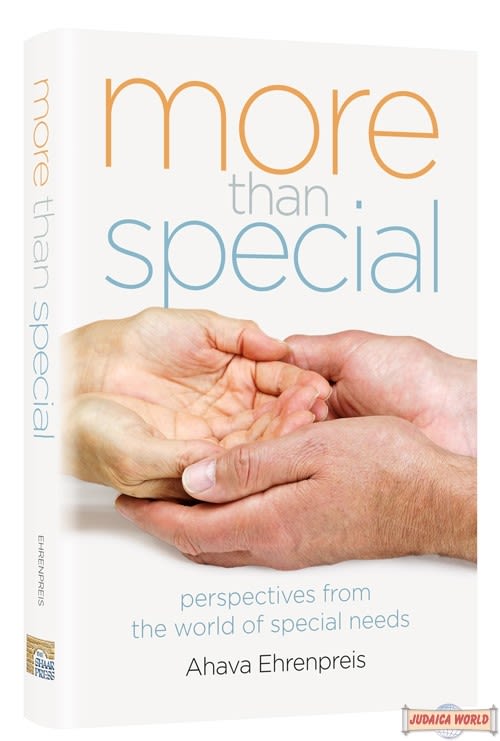
The Need to Connect
Our need to pray is our need to spiritually fit into the context of creation, to become spiritually one with the whole of which we are but a part.

Please God, Sarah prayed, watch over Dad. I can’t fly this plane and take care of him too…
Now Sarah began to recite the familiar prayers, and an overwhelming peace enveloped her. It was if both God and her father were with her.
* * *
SO FAR, THIS MAY ALL SOUND very spiritual and overly esoteric, but it really is as basic as eating. And though the modern reaction of many to prayer is that it is foreign, the benefit of praying is not so foreign:
For 35 years of my life I don’t think I ever prayed, at least not sincerely. Then during one vacation while hiking, I slipped off a cliff and fell twenty-five feet, breaking my leg. The only problem was that I was hiking alone, and there was no one around to help me. Believe me, I was scared. After being angry at myself for hiking alone, I lay there helpless, and started to cry to myself. When I confronted the possibility of dying there, out in the wilderness, I imagined my wife and my children fatherless…
“God… God… God…” I caught myself saying.
It made me wonder, did I actually believe there was a God, or was it just the thing to say in such a predicament? I said to myself, “Atheist or no atheist, if there was ever a time to pray, this is it!” So I did. Within minutes I was crying to God, begging Him to forgive me and save me from a horrible death. Where did it come from? It felt as if a door had been opened allowing years of pent up religious fervor to escape! I made promises, of course. Did I think a miracle was going to happen? I don’t think so, but I certainly hoped for one. The interesting thing was, I didn’t feel so cold anymore. I didn’t even feel so afraid of dying. Even the pain seemed bearable now. And I had an eerie sense of calm I never experienced before. What I really noticed was how I didn’t feel alone – everything around me seemed to be keeping me company. I was at peace with the world around me.
The opposite of harmony is disharmony. Disharmony is when parts are arranged together in a non-pleasing order. Thus the same parts, when arranged in a pleasing order, result in harmony.
Likewise, peace of mind, harmony, and joy depend upon mankind fitting into the context into which he was created. When mankind is disconnected from creation, he lives removed from his “place” within the creation. Disjointed, he becomes estranged and his life becomes disharmonious. (Shem m’Shmuel, Parshas Noach, 5671.)
As the above quote stated, the person reported that praying brought a sense of calm, and peace with the world around. The result of praying was a sense of harmony.
Our need to pray is our need to spiritually fit into the context of creation, to become spiritually one with the whole of which we are but a part. The synergy of a harmonious creation is one’s source of energy, sense of well-being, and purpose.
Our tool to spiritually integrate ourselves with the world around us is our ability to communicate, to pray. But if this is so, then why not pray to the world around us instead of God. Why is God Himself the organizing factor within creation, the ultimate cause of universal harmony and inner peace?
Imagine for a moment being a part of the president of the United State’s inner cabinet. Summoned for a high level meeting, you are now waiting with your colleagues for the arrival of the president.
As you survey the room, you begin to appreciate that you are part of a very exclusive group of individuals, each politically powerful in his or her own right. You feel very privileged to be counted among such a special and unique group.
However, it is not until the president himself enters the room that you really feel a sense of accomplishment and purpose, and most of all, gratitude. And upon feeling all of this, you are exhilarated.
What difference does the president of the United States make? The difference is, the president represents the common drive of the entire group. Being the most powerful person in the United States, and the source of everyone’s reason to be there, he is the unifying factor of the group.
The president then is the creator of the context of the entire band of politicians. Thus it will be the president’s drive and sense of purpose that gives meaning to the people who serve him.
It is difficult to compare a man to God, but the analogy helps to make the point. God represents the common drive of all of mankind, and creates the spiritual and philosophical context into which we all yearn to find a place; and not just any place, but the place we were created to fill.
When I close my eyes and pray to God, I feel as if I return to myself – my true self. Standing before Him puts me and my life in perspective. So much of the time I spend being “something”, a lot of times something I’m not. When I stand before God, I can only be myself. What point is there in auditioning for God? He knows where I’m at. He knows what’s shtick, and what’s not. But that’s what’s so refreshing and uplifting about prayer for me: I like being me. I like being what I am. It makes me feel more at home in a world that often makes you feel that you should be something else. Prayer makes me feel as if God’s behind me, and when God’s behind you… well… you’re ready to do just about anything…
If God is the Creator of all existence, and all of existence exists within Him, so-to-speak, then He is the spiritual context in which are to live. (Because God is infinite in an absolute sense, nothing can exist “outside” of Him. Therefore, by definition, everything exists “within” Him, so-to-speak, which certainly raises other philosophical questions.) Therefore, spiritually fitting into the fabric of creation by necessity means having a relationship with Him, and that means praying to Him, specifically.
Summary:
Achieving harmony with creation is a product of fitting into one’s spiritual context within the fabric of creation. Prayer is a vehicle for doing this when it is directed to God, the spiritual context of creation.
***
Pinchas Winston is the author of over 95 books on various topics that deal with current issues from a traditional Jewish perspective. He has also written on the weekly Torah reading since 1993, called “Perceptions”, as well as on current topics and trends affecting Jewish history, past and present. One of his missions is to make the depth and beauty of the more mystical teachings of Torah understandable and accessible to those who can really benefit from them. Visit his website at thirtysix.org.













Tell us what you think!
Thank you for your comment!
It will be published after approval by the Editor.